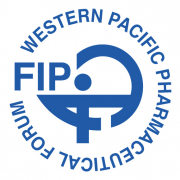Fighting the Ebola outbreak in Sierra Leone
21 Jul, 2014
reference:http://www.who.int/features/2014/ebola-sierra-leone/en/
National health authorities, WHO and partners are working around the clock to contain the Ebola outbreak affecting Sierra Leone’s eastern districts of Kailahun and Kenema.
Kailahun is situated close to the border with Guinea and specifically the Gueckedou region where the outbreak was first declared in March this year. The first confirmed Ebola cases in Kailahun were reported on 25 May.
As of 17 July 2014, the total number of cases attributed to Ebola virus disease (EVD) in Sierra Leone, was 442 cases including 206 deaths.
“Since my arrival 12 days ago we buried more than 50 bodies in 2 makeshift graveyards close to Ebola treatment centre” says Jose Rovira, a logistics expert working with the WHO who trained 20 volunteers from the National Red Cross and Ministry of Health in safe burials of deceased Ebola patients in Kailahun district “and this number does not include burial of people who died in their homes. We receive daily alerts on suspected community deaths.”
Finding and treating all Ebola patients and then tracing and observing the close contacts of those people over a period of 21 days to ensure they have not been infected is a key to halt the chain of transmission.
“We are running behind Ebola. We came too late when villages already had dozen of cases and right now we don’t know where all chains of transmission are taking place” says Anja Wolz, emergency coordinator with Médecins Sans Frontières (MSF) running the Ebola treatment centre in Kailahun. “Since we set up the centre 4 weeks ago, we had over 90 confirmed cases but I think it is the tip of the iceberg.”
The transmission chain moved then south to the larger city of Kenema. The district hospital turned two wards into a treatment centre with WHO providing clinicians and technical assistance. Eight nurses working in the Ebola ward were infected, depleting an already thin health workforce.
“We have a limited capacity and our health workers are not well prepared” says Dr. Brima Kargbo, Sierra Leone Chief Medical Officer currently overseeing the response in Kenema. “The external assistance is very much appreciated.”
Maximizing limited resources
In both cities, the response is organized through committees working on different aspects and chaired by national health authorities: case management and infection control, surveillance and social mobilization, psychosocial support, and logistics.
“To succeed in actively finding the sick people, community participation is vital.” explains Dr. Zabulon Yoti, WHO team leader and emergency coordinator in Kailahun. “With financial support from partners, we recruited, trained and equipped 20 volunteers with mobile phones in each of the 14 chiefdoms. Some 300 volunteers are charged with contact tracing and alerting the Ministry of Health on any suspect cases or deaths. The programme is producing results and funding is available for the next 3 months.”
WHO helped with the deployment of Public Health Canada mobile laboratory in Kailahun; while in Kenema the testing is done in the existing Lassa fever research centre. Activities on social mobilization are also ongoing, but fear and anxiety persist especially in rural areas. Activities involving the traditional and religious leaders in the Kailahun district has already resulted into greater acceptance of the health interventions by the community.
Early admission of cases in the case management centres for supportive care improves chances of survival. There have more than 50 Ebola infected patients who have so far been discharged and sent home following successful management at the Kenema treatment centre.
Robust response urgently needed
The vast geographical spread of the outbreak requires an enormous and robust response capacity and structures. However, as this is the first major EVD outbreak in West Africa, affected countries have to scale up their epidemic preparedness and response systems.
In Sierra Leone, there is a unanimous opinion among all those involved that without more resources the fight against Ebola may prove to be too difficult. “We need to step up the response and we need to do it fast” says Dr. Yoti, “we need more experts on the ground, more funding and more logistical support.”
There are a lot of volunteers from the community ready to take part in response but often there is a lack of experienced people to supervise operations.
“We are facing a very serious outbreak and we need more personnel and logistics” concludes Dr. Kargbo.
